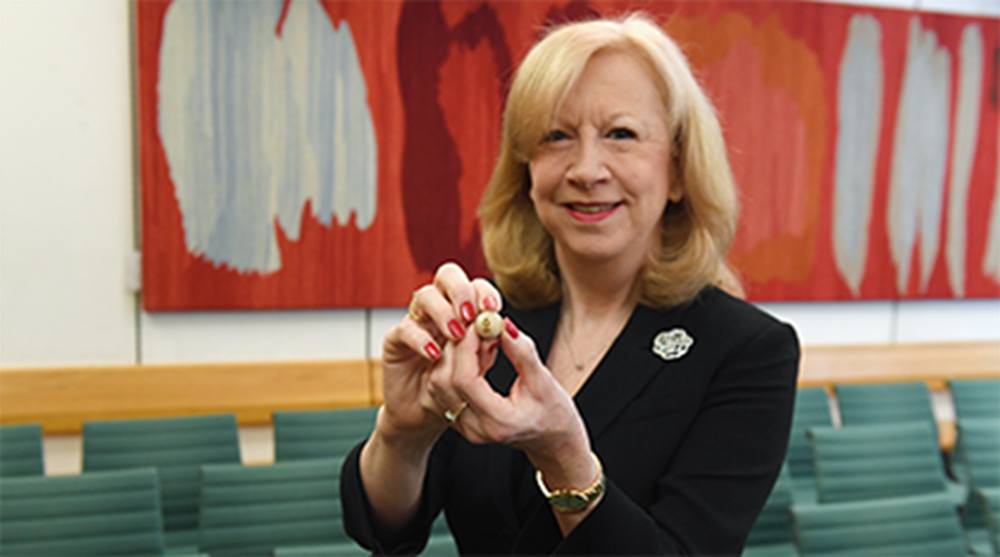Private Members' Bill ballot: 20 May 2021
20 May 2021 (updated on 20 May 2021)
The ballot for Commons Private Members' Bills for the 2021-2022 session took place on Thursday 20 May. Mark Jenkinson was drawn in first place.
Ballot results
Chairman of Ways and Means, Rt Hon Dame Eleanor Laing, drew 20 numbered ballot balls and read out the names of the successful MPs.
The full draw can be watched back on Parliament TV.
The Member drawn at position one has the first choice of a Private Members' Bill Friday to debate their Bill.
459 Members entered the ballot. The top 7 will be guaranteed a full day of debate on their Bill.
Positions on the ballot
- Mark Jenkinson, Conservative, Workington
- Barry Gardiner, Labour, Brent North
- Carolyn Harris, Labour, Swansea East
- Dr Liam Fox, Conservative, North Somerset
- Sajid Javid, Conservative, Bromsgrove
- Kevin Brennan, Labour, Cardiff West
- Jeff Smith, Labour, Manchester Withington
- Colum Eastwood, SDLP, Foyle
- Peter Gibson, Conservative, Darlington
- Dr Ben Spencer, Conservative, Runnymede and Weybridge
- Mel Stride, Conservative, Central Devon
- Margaret Ferrier, Independent, Rutherglen and Hamilton West
- Matt Rodda, Labour, Reading East
- Jane Stevenson, Conservative, Wolverhampton North East
- Chris Bryant, Labour, Rhondda
- Paul Beresford, Conservative, Mole Valley
- Jeremy Wright, Conservative, Kenilworth and Southam
- Richard Fuller, Conservative, North East Bedfordshire
- Andrew Rosindell, Conservative, Romford
- Rosie Cooper, Labour, West Lancashire
Presentation of Bills
The Ballot Bills will have their First Reading in the House of Commons on 16 June, and will then be debated over 13 sitting Fridays. The dates of the sitting Fridays in this session have not been announced yet.
What is the Ballot for Private Members' Bills?
The ballot for Private Members' Bills gives MPs the chance to be one of the first 20 to introduce a Private Members' Bill on a subject of their choice this session. Those drawn higher in the ballot are more likely to get time to debate their Bill and therefore their Bills will have a higher chance of becoming law.
Speaker of the House of Commons, the Rt Hon Sir Lindsay Hoyle MP said:
“Success in the Private Members' Ballot empowers backbench MPs with a real opportunity to affect true legislative change or, at the very least, bring public awareness to an issue they feel passionate about."
Success of Private Members' Ballot Bills
In the 2019-21 session, the following seven Bills from the Private Members' Ballot became law:
- Animal Welfare (Sentencing) Act 2021 – Chris Loder MP.
- Botulinum Toxin and Cosmetic Fillers (Children) Act 2021 – Laura Trott MP
- British Library Board (Power to Borrow) Act 2021 – Bim Afolami MP
- Education (Guidance about Costs of School Uniforms) Act 2021 – Mike Amesbury MP
- Education and Training (Welfare of Children) Act 2021 – Mary Kelly Foy MP
- Forensic Science Regulator Act 2021 – Darren Jones MP
- Prisons (Substance Testing) Act 2021 – Dame Cheryl Gillan MP
What are Private Members' Bills?
Private Members' Bills are Public Bills introduced by MPs and Lords who are not government ministers. As with other Public Bills their purpose is to change the law as it applies to the general population. A minority of Private Members' Bills become law.
There are three ways in which a Member can table a Private Members' Bill but Ballot Bills have the best chance of becoming law, as they get priority for the limited amount of debating time available.
The names of Members applying for a Bill are drawn in a ballot held at the beginning of the parliamentary session. Normally, the first seven ballot Bills get a day's debate.
Follow @HouseofCommons on Twitter for updates on the UK House of Commons Chamber.
